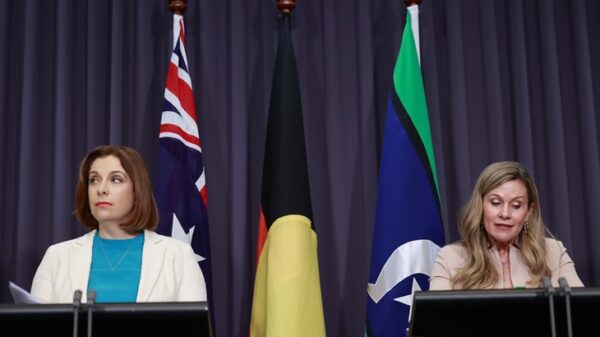Labor MPs Alicia Payne and Michelle Ananda-Rajah have urged the Australian government to introduce a time limit on the recovery of welfare debts, a measure that could potentially eliminate up to $1 billion in historical liabilities. This call follows recent revelations reported by the Australian Financial Review, indicating that the government plans to forgive 160,000 historical debts despite a court ruling permitting their recalculation and collection.
The ruling prompted the Department of Social Services to reassess debts that had been calculated using a method deemed unlawful by the Commonwealth Ombudsman. This method relied on flawed assumptions regarding individuals’ daily earnings, particularly when their pay cycles did not align with the welfare income reporting periods.
Social Services Minister Tanya Plibersek is currently developing options to address the legacy of this income apportionment method, which was utilized for over 30 years until 2020. Advocates from the Greens, Community and Public Sector Union, and organizations such as Economic Justice Australia and the Antipoverty Centre are pushing for the complete cancellation of these debts, citing fairness to welfare recipients as a primary concern.
Kate Allingham, chief executive of Economic Justice Australia, highlighted the severity of the issue, stating that member centers have encountered debts amounting to “hundreds of thousands of dollars” dating back to the 1980s. She emphasized that these debts have only recently been raised, causing significant distress for those affected.
Payne expressed support for the consideration of debt forgiveness, noting the trauma caused by the previous attempts to collect such debts, particularly in light of the robodebt scandal. “The pain and distress trying to recover debts going back many, many years can have on people,” she remarked. She also indicated her support for a proposed six-year limit on debt recovery, a measure the government tentatively accepted in November 2023 but has yet to legislate.
Ananda-Rajah, who served as the member for Higgins from 2022 to 2025 and is now a senator from Victoria, commented on the need for a time limit, suggesting that “it is rough to be hitting people decades on.” She pointed out that pursuing historical claims could undermine public trust in the social security system, especially among vulnerable Australians who may feel they lack a voice in these matters.
Greens social security spokeswoman Penny Allman-Payne has formally written to Plibersek, arguing that the department’s reliance on illegal income averaging for these debts raises questions about their legality. She contended that, given the immense resources required to manually review over 100,000 cases, continuing to pursue these debts would be both “cruel” and an inefficient use of taxpayer funds.
Independent MP Andrew Wilkie echoed these sentiments, stating that the government should forgive historical social security debts that were accumulated unlawfully. He emphasized that if successive governments fail to comply with the law, the responsibility should not fall on individual welfare recipients.
The national secretary of the Community and Public Sector Union, Melissa Donnelly, warned that pursuing these historic debts could lead to increased aggression from customers. She pointed out that the existence of debts dating back to the 1970s underscores the necessity for Services Australia to have adequate staffing and systems in place to manage issues as they arise, rather than decades later.
Kristin O’Connell, a spokeswoman for the Antipoverty Centre and a recipient of the disability pension, voiced concerns about the impact of renewed debt collection efforts on individuals’ mental well-being. She remarked that the pause in debt collection allowed many affected individuals to focus on their daily survival, but the arrival of new demands for information could trigger significant anxiety.
O’Connell also called on the government to offer compensation to those who repaid debts that were calculated unlawfully. This demand could increase the total remediation cost to as much as $4.9 billion, reflecting the full value of debts calculated under the discredited income apportionment method, including amounts already repaid or settled.
As discussions continue within the government, the push for a time limit on welfare debt recovery highlights the broader challenges faced by the social security system in Australia and the pressing need for reform to protect vulnerable citizens.






























































